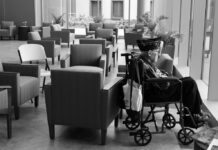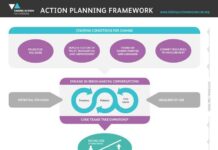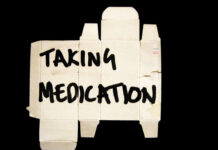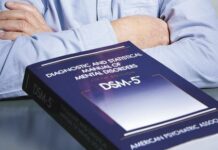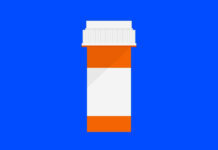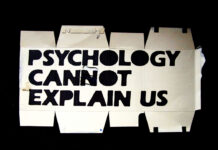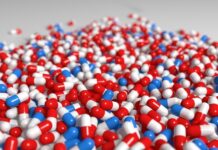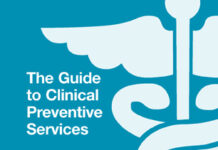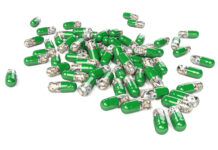Veterans with both PTSD and Dementia More Likely to be Prescribed Antipsychotics
Researchers found that veterans with both conditions had higher odds of being prescribed second-generation antipsychotics than those presenting with just PTSD.
New Findings Suggest Masculinity is a Risk Factor for Suicidal Thinking
Men who report being self-reliant may be at greater risk of suicidal thinking.
Added Evidence for Yoga for Major Depression
Randomized controlled trial finds yoga intervention reduces depression severity.
Reducing Overuse of Low-Value Treatments
Researchers provide an action-planning framework to engage providers in the reduction of low-value healthcare.
Physical Activity Predicts Fewer Symptoms of Depression in Children
An article published in Pediatrics is the first to examine the relationship between physical activity and depression in middle childhood (years 6 to 10) longitudinally.
Researchers Make a Case for a “Theory of Nothing” in Psychology
What meaning do psychological constructs really hold, and how are they operationalized and statistically modeled within psychology research?
Danish Study Finds Better 10-year Outcomes in Patients Off Antipsychotics
Study finds that 74% of patients with a psychotic disorder off antipsychotics at end of 10 years are in remission.
A Healthier Diet Reduces Depressive Symptoms
The “Mediterranean diet” has been associated with reduced risk of depressive symptoms, and a new study demonstrates that dietary changes may be an effective treatment intervention.
Professionals Push Back on Psychiatric Diagnostic Manual, Propose Alternatives
Criticisms of the DSM-5 spark alternative proposals and calls to reform diagnostic systems in the mental health field.
Two Thirds of Patients See Physicians Who Receive Payments From Pharma
Study finds more patients are visiting physicians who have ties to industry than previously thought.
‘Do Antidepressants Work?’ is the Wrong Question
“This research points to the inadequacy of asking the simple question: ‘Do antidepressants work?’ Instead, the value or otherwise of antidepressants needs to be understood in the context of the diversity of experience and the particular meaning they hold in people’s lives.”
Animal Study Supports Influence of Probiotics on Resilience to Stress
Researchers experimenting on mice found that Lactobacillus—the probiotic commonly found in yogurt—may help reduce depressive symptoms in reaction to chronic stressors. But human studies have found mixed results.
Patients More Likely to Refuse Drug-Only Treatment, Study Finds
The American Psychological Association (APA) recently published a study finding that patients assigned to drug-only treatments were more likely to refuse treatment, and more likely to drop out before treatment completion, than patients assigned to psychotherapy only.
An Alternative Perspective on Psychotherapy: It is Not a ‘Cure’
Kev Harding argues against conceptualizations of therapy as a ‘cure’ to an ‘illness’ and instead offers alternative approaches.
Collaborative Care Effective for Older Adults with Depressive Symptoms
A new study suggests that depressive symptoms in older adults can be improved with non-invasive behavioral activation techniques. These approaches appear to have a preventative effect, serving to prevent further depressive symptoms from developing.
Despite Increase in Treatments, Prevalence of Mental Health Issues Climbs
Findings show that despite increases in treatment availability, the prevalence of mental health issues has not decreased.
Experts Concerned That Depression Screening Will Lead to Overdiagnosis
Behind the U.S. task force recommendation to screen all children and adults for depression.
Transition into Poverty May Worsen Child and Maternal Mental Health
Transitioning into poverty linked to behavioral issues in children, but may be mitigated by mother’s mental health.
Patient Race Associated with Varied Psychiatric Treatment Experiences
Findings point to association between race and the mental health care experiences of African-American and White veterans.
Trials Comparing Treatments for Depression Favor Pharmacotherapy when Statisticians Involved
A meta-analysis looks at the effects of researcher background on study findings for trials comparing pharmacotherapy and psychotherapy for depression.
New Medications Fail to Show Efficacy for Alzheimer’s Disease
Three phase III clinical trials assessing the efficacy of Lundbeck’s investigational drug idalopirdine for Alzheimer’s disease have failed
Neuroscience-based Treatment Program Proposed for Adolescent Depression
A study published in Frontiers in Human Neuroscience proposes a new model for the treatment of adolescents diagnosed with major depressive disorder (MDD).
Children with ‘ADHD’ Commonly Prescribed Antipsychotics
Despite little evidence for benefit, and substantial risk of harm, antipsychotics are commonly prescribed to children diagnosed with ADHD
Researcher Acknowledges His Mistakes in Understanding Schizophrenia
Sir Robin Murray, a professor at the Institute of Psychiatry, Psychology, and Neuroscience in London, states that he ignored social factors that contribute to ‘schizophrenia’ for too long. He also reports that he neglected the negative effects antipsychotic medication has on the brain.
Many Patient Advocacy Organizations Are Funded By Industry
New research investigates the financial conflicts of interest (FCOI) of patient advocacy organizations (PAOs) in the United States.

